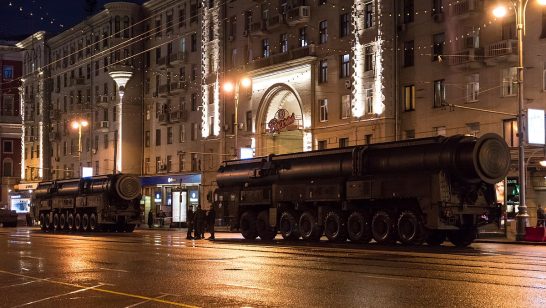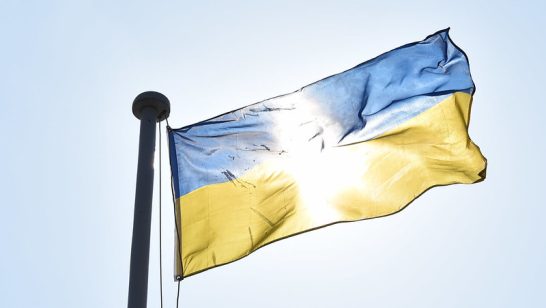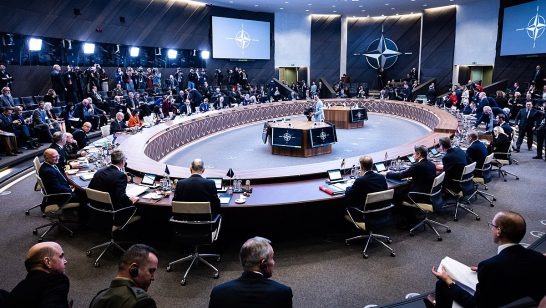
As the war in Ukraine entered its third year this winter, the situation on the battlefield has changed to the detriment of Ukraine. Although the Ukrainian army has successfully pushed back the Russian fleet from the Black Sea, it has been unable to break Russia’s deeply entrenched defences. Its severe lack of both ammunition (estimated at 5:1 compared with that of Russia) and manpower, coupled with poor frontline fortifications and depleting air defence and long-range missiles, are gradually pushing it back.
In February, the Russian forces took the city of Avdiivka in Eastern Ukraine and have been slowly moving further, endangering other strategic towns, like Chasiv Yar. As Russia prepares for offensive operations in late spring or early summer, the much-delayed $60.5bn US aid package offers some hope to Ukraine, but there is no guarantee that more will be forthcoming. Overall, Western military-industrial capacity needs at least a year to reach that of Russia.
Last October, the European Leadership Network, in partnership with the Hanns Seidel Foundation, gathered together experts from Ukraine, Russia, and wider Europe to discuss the practical implications of the potential outcomes of Russia’s war in Ukraine for the European Union (EU) and the United Kingdom (UK). The group came up with seven scenarios, ranging from a decisive victory by Ukraine or Russia to neither side achieving a military victory, and instead, a ‘prolonged war’ or a ‘massive’ or ‘creeping’ escalation between Russia and the West.
At the time, all scenarios appeared plausible. Today, in this changed environment, the ‘prolonged war’ scenario – which may develop into a ‘creeping’ or even a ‘massive’ escalation – has gathered added urgency as it appears most plausible. This scenario implies that Russia retains the territory it has conquered, and there is a long war with varying levels of violence, sometimes “freezing” and sometimes escalating. What implications could such a scenario have for Europe? And how can the EU and the UK prepare for it?
Prolonged war
In a “prolonged war”, populism and corruption within the EU will be on the rise as the Union tries to tackle its growing internal divisions and other problems, such as migration from both Ukraine and Russia. The EU enlargement process may encounter multiple hurdles. Could the EU expand without enlarging into Ukraine? Some member states may promote accession of the Western Balkans as a counterbalance to Russia, but Eastern EU countries would likely link this to Ukrainian accession, arguing, “No Ukraine, no Balkans.” As a result, the EU could try to leverage its funds to support Ukraine by promoting partial accession to some EU areas, such as structural funds, for example, but falling short of a full enlargement.
The continuing war would constrain the EU’s economic cooperation with other Eastern European countries. Due to persistent geopolitical pressure, economic disparities between EU member states could increase. Climate change would be a significant challenge, and Russia would use climate as a weapon (e.g., by spreading disinformation that climate change is good for Russia). As Russian exports to grey markets continue, geopolitical pressure on oil prices would remain.
The military relationship between European countries would probably become stronger as common defence activity would increase. We are already seeing signs of it in the European Defence Industrial Strategy (EDIS), launched in March 2024 to strengthen the EU’s military-industrial base. At the same time, a rift between eastern and southern EU states may emerge as the South is more concerned about problems besides the war in Ukraine, such as migration, the Sahel, and the Middle East.
Cooperative security in Europe, based on mutual trust and transparency, as reflected in the OSCE mechanisms, would be near a total collapse, and conventional risks would rise as an arms race would progress. Nuclear risks may also be high, leading to a permanent “5 minutes to midnight” situation.
The West might have achieved some progress in countering Russia by providing (limited) military support to Ukraine, but the lack of decisive victory for Ukraine would have significantly weakened Europe’s voice in multilateral institutions. The latter are also likely to be under more general strain as more conflicts could persist globally. The US and Russia could “live” with an ongoing war of attrition, although it would have costs for both. With Europe preoccupied and Russia exhausted, China would be emboldened.
Creeping escalation
Prolonged war may, however, escalate over the course of a few years. Depending on several variables, such as the re-election of Donald Trump as US President or a re-thinking of policy in Ukraine or Russia, the situation could grow unsustainable for either side and command change.
In the ‘creeping escalation’ scenario, escalatory events would be happening on the margins of the conflict: bombs and missiles would be dropped in a variety of places, sometimes near the NATO border; strategic corridors attacked; or Russian aircraft would fly over NATO states. However, NATO and the EU would not intervene directly with ground forces. Occasional ceasefires could also take place when advantageous to both sides.
Creeping escalation would lead to extended European disunity, particularly if Donald Trump was in power in the US... The EU would no longer be a union of values but an intergovernmental confederation. Katia Glod
Creeping escalation would lead to extended European disunity, particularly if Donald Trump was in power in the US: Western Europe versus Eastern Europe, and Northern countries versus Southern ones. The EU would no longer be a union of values but an intergovernmental confederation. It would manage to hold together due to its proven history of overcoming crises but would be less effective. The EU’s further enlargement would be problematic. It could stumble or may halt altogether, as member states would like to reduce the risks of war with Russia over Ukraine.
European security would be weakened. NATO would take the biggest hit, becoming de facto meaningless and disintegrated. New alliances would emerge, such as, for example, between the UK, Poland, and the Baltic states. Other actors outside of Europe may use such developments to opportunistically achieve their own goals by force: China could invade Taiwan, and the US’s attention would be diverted away from Ukraine and Europe. The Middle East’s conflicts would blow hot and cold.
Massive escalation
But Russia could also significantly escalate with the view to winning the war.
In this scenario, Russia would threaten a nuclear strike or a conventional attack on a NATO country. It may also perform a major hybrid operation with strategic effects, such as taking out the energy grid in Europe. Alternatively, Russia could use tactical nuclear weapons in Ukraine or attack a NATO country with conventional arms; the latter might be in response to NATO stepping up military assistance to Ukraine.
NATO would retaliate, potentially going into a full-fledged war with Russia, either kinetic or hybrid. Both NATO and Russia would suffer damage, and Russia would likely be defeated.
The colossal shock would probably unite the EU, but Western dominance and the role of European institutions would irrevocably decline. Multilateralism would have crumbled. Who is going to mediate? New ways of thinking about the international order could emerge, leading to a new global system which could benefit China. The latter might take over world leadership, offering a modest ‘Marshall Plan’ to the West. European security would collapse, nuclear weapons proliferate, and so would the arms race.
***
All three outlined scenarios are dark for the EU, the UK and wider Europe. Therefore, both policy-makers and experts alike increasingly think that the only way to avoid them is for the West to supply Ukraine with enough weapons and ammunition so that the Ukrainian forces can defeat Russia on the battleground. Only if Russia comes to acknowledge its defeat on the frontline will it be willing to negotiate a genuine peace settlement. If, on the contrary, Russia feels emboldened by successfully subjugating Ukraine, there is all reason to expect that it will try to grab more land, be it in Moldova or the Baltics.
All three outlined scenarios are dark for the EU, the UK and wider Europe. As the participants of the ELN-HSF scenario-building workshop concluded, European leaders should define the war’s purpose. Katia Glod
As the participants of the ELN-HSF scenario-building workshop concluded, European leaders should define the war’s purpose. For Russia’s president Vladimir Putin, the war is no longer about Ukraine but about establishing a ‘new world order’ in opposition to that of the West. European leaders should seek an appropriate solution to the challenge posed by Russia’s leadership to the rules-based order.
The EU and the UK should also be better prepared for international competition and confrontation with Russia by adopting a more consistent approach to conflicts around the world. Russian criticism of Western double standards finds a ready audience in much of the world; in other regions, the war and Russia’s role are often perceived differently than in Europe.
Europeans should aim for the best (defeat of Russia) but prepare for other scenarios too. Even under scenarios where Ukraine cannot win a military victory, European integration of Ukraine reduces the risks and costs compared to other scenarios that produce a Ukraine that is both militarised and isolated.
The opinions articulated above represent the views of the author(s) and do not necessarily reflect the position of the European Leadership Network or any of its members. The ELN’s aim is to encourage debates that will help develop Europe’s capacity to address the pressing foreign, defence, and security policy challenges of our time.
Image: Wikimedia commons, Kursant504, Mil.ru, Ministry of Defence of the Russian Federation



